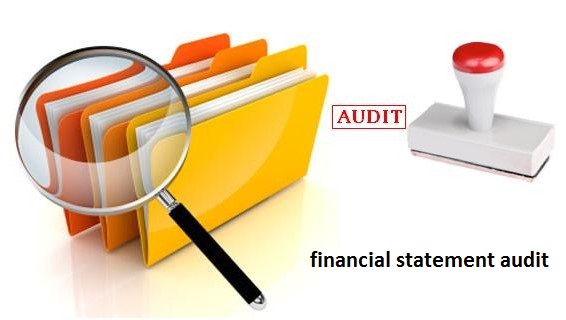Have the financial records on par with all the standards demanded of modern companies? Assessing your Audited financial statements is free of errors, and disagreements are crucial in presenting critical small business amounts for banks, banks, and investors. Not sure what goes to a financial audit or ways to start? Continue reading to receive a breakdown of the various stages of a financial audit and how you’re able to automate this specific procedure.
What’s a financial audit?
A financial accounting audit can be a procedure that makes it possible to keep the truth of your own company’s financial transactions. Audits make sure that stakeholders are supplied with credible and accurate advice so that they may make more informed decisions regarding your business.
The financial audit procedure involves having auditors measure the financial arrangements and announcements of one’s small business. A regular business financial audit includes four chief stages: preparation, putting internal controls, analyzing, and coverage.
The Planning Phase
To put your business financial audit, then you want to produce an idea for the data set. This step is vital in collecting accurate details regarding your company transactions to understand your business’s current financial standing.
By pinpointing the most useful data set procedure, you’re able to quickly collect error-free qualitative information that’s very important in keeping the integrity of one’s financial invoices and assisting you in making informed business decisions.
Additionally, it is well worth mentioning that the master plan you want to put in a position to plagiarize company data needs to stick to regulations determined by the GAAP.
The Inner Controls Phase
Even the auditors who’ll assess one’s critical organization numbers’ integrity won’t only consider the data you have accumulated. Additionally, they will inspect the monetary procedures you have put in place. To this end, setting internal controls and sticking with these is equally as crucial as collecting historical info regarding your organization trades. Otherwise, it will soon be challenging for the auditor to think of a precise record of your company’s financial status.
Testing Phase
With the essential business enterprise data on internal and record controls in place, another thing to sign off your list is how your interior controllers — to assess if they’re working.
To assess how well the inner controllers will work for the organization, the auditor may ask extra info regarding your institution’s business trades, keep on with the review, and see firsthand the inner controllers have been performed.
The Reporting Period
How can your organization fare at the class of the financial small business audit? You will find out for sure at the Reporting period. An unqualified endorsement may be the maximum rating you may get. Next can be a professional endorsement, accompanied near using a disclaimer, last but not least, an adverse finding.
The analysis report summarizes an unbiased evaluation of one’s financial statements and internal accounting procedures. Take advantage of these findings to create necessary alterations on your internal processes; therefore, your bookkeeping team may avoid data entry errors and produce more insightful and accurate data later on.
Automating your financial plan
A fast glance at the economic plan procedure should explain it is a tedious job, way more if done by hand. The fantastic thing is that on-cloud bookkeeping applications feature automated audit course features.
This feature is also a convenient method to list your business’s financial trades with the years and keep your company records organized. Besides documenting statements and payment records, your preferred applications should also help you identify errors and fix them to produce financial audit simpler for the bookkeeping team.
An extensive financial audit is incredibly beneficial in determining where your organization is now and what you want to do to gear your company in the ideal direction. Automating some financial audit procedures is a critical phase in gaining better control of your small business financing. Simply Solved motivates SMEs to work with today’s tools to enhance their business procedures.

8 Comments